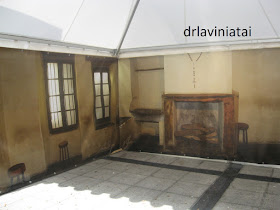Chinese proverbs, which originate from famous philosophers and writers from China, are traditional sayings that express truth or give advice. These words of wisdom that teach us about the valuable lessons of life have passed from generation to generation throughout the centuries. In this article, I would like to share 30 meaningful Chinese proverbs with my readers and I hope that they would enjoy reading them and share them with their family, relatives and friends.
1. A clear conscience is the greatest armor (Traditional Chinese Proverb).
2. A coin a day makes a thousand coins in a thousand days. In the fullness of time, a rope may saw through a tree and constant dripping of water can wear away a stone (Zhang Guiya, Southern Song Dynasty).
3. A fish that frees itself from the hook will swim away never to return (Traditional Chinese Proverb).
4. An army can be deprived of its commander but a man cannot be deprived of his will (Confucius).
5. A man should seek friends who are better than him, not his own kind (Traditional Chinese Proverb).
6. Ancestors plant trees, but the descendants rest in the shade (Traditional Chinese Proverb).
8. A virtuous man concentrates on his own work, not that of others (Zeng Shen, better known as Zengzi, 505-435BC).
9. Coward have dreams, brave men have visions (Traditional Chinese Proverb).
10. Distant fire cannot put out a fire close at hand (Li Chu).
11. Do not drive the tiger from the front door while letting the wolf get in the back (Hu Zhidang, Han Dynasty).
12. Feed the soldiers for a thousand days to use them in battle for one day (Traditional Chinese Proverb).
13. He who governs by virtue is like the Pole Star, which keeps its place while the other stars revolve around it (Confucius).
14. He who knows, does not speak. He who speaks, does not know (Lao Tzu)
15. He who speaks without modesty will find it difficult to make his words good (Confucius).
16. If you suppress your desire for glory, you will not be disappointed (Emperor Yu, founder of the Xia Dynasty).
17. It is a disgrace for a gentleman to let his words outrun his deeds (Confucius).
18. Listen to both sides and you will be enlightened. Listen to one side and you will be in the dark (Wei Zheng, minister in the Tang Dynasty, 580-643).
19. People differ in life, but all are equal in death (Yang Zhu, Zhou Dynasty).
20. Shrimps may attack dragons in shallow water (Traditional Chinese Proverb).
21. The caged bird yearns for its former forest (Tao Qian, warlord and governor of Xu Province in the late Eastern Han Dynasty, 132-194).
22. The higher the rank I attain, the more humble I become. The greater my power, the less I exercise it. The richer I get, the more I give away. Thus I avoid envy, spite and misery (Sunshu Ao, court minister during the Eastern Zhou Dynasty, 630-593BC).
23. The leader must be at the forefront of the army's struggles. He neither sits in the shade in summer, nor dons warm clothing in the winter (Zhang Yu, Song Dynasty).
24. The man with a clear conscience fears not a knock on the door at night (Traditional Chinese Proverb).
25. There is good government when those who are near are made happy, and those who are far away are attracted (Confucius).
26. The sky has unexpected wind and clouds. Mankind has unexpected calamities (Traditional Chinese Proverb).
27. The truly wise man does not display his wisdom. Such is the secret of being well-liked (Yang Zhu, Zhou Dynasty).
27. The truly wise man does not display his wisdom. Such is the secret of being well-liked (Yang Zhu, Zhou Dynasty).
28. The wise man puts himself last and finds himself first (Lao Tzu).
29. You can lead a cow to water, but you cannot make it drink (Traditional Chinese Proverb).
30. You can only say that you have learned archery when you know why you have hit the target (Guan Yinzi).
You may also like to read QUOTES ABOUT NECKLACES; QUOTATIONS FROM THE BIBLE; and INSPIRATIONAL QUOTES FROM POPE FRANCIS THAT CAN CHANGE YOUR LIFE. To view the content page of this blog, please click here.
Reference:
The Little Book of Chinese Proverbs (Compiled by Jonathan Clements). Parragon Books.







